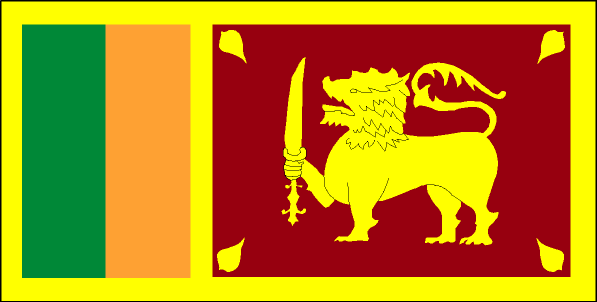Ilankai Tamil Sangam30th Year on the Web Association of Tamils of Sri Lanka in the USA |
|||
 Home Home Archives Archives |
Ceaseless DynamicTamil Guardian editorial, London, January 24, 2007
The Liberation Tigers' withdrawal last week from the Vaharai enclave has averted an imminent blood bath amongst the 15,000 Tamil civilians trapped in the area. The Sri Lankan military occupied the enclave and moved into the area around the Verugal river over the weekend. Hailing the capture of this fertile backwater as a major victory, the government of President Mahinda Rajapakse makes no secret it intends to escalate its military onslaught. The euphoria amongst (the burgeoning ranks of) the Sinhala nationalists and the tub thumping in the south has reached fever pitch. Some seasoned observers of Sri Lanka's conflict - including a few self-described opponents of the LTTE - are urging caution, either suggesting the Tigers' recent withdrawals ahead of government offensives are tactical or pointing out that the LTTE's multifaceted war machine is very much untouched. But leading Sinhala thinkers, adamant the 'ancient enemy' is hopelessly weak, are shrilly calling for total war. We opt to leave such analysis (and speculation that passes for it) to others. However, the contemporary trajectories confronting the Tamil people deserve comment. The Sinhala oppression which (eventually) triggered Tamil demands for autonomy erupted soon after Ceylon gained independence from Britain. Tamils' peaceful political agitation for equal rights was met with rising Sinhala violence, prompting our demands for federalism and, finally, independence. Our enemy, in all that time, has been the same: the Sinhala chauvinism which captured Sri Lanka's state and polity after the British left. We return to these familiar arguments for a reason: to put contemporary developments in perspective. President Rajapakse's administration is, at its core, no different from any before it, just bolder and cruder. The mindset of the Sinhala leadership has been unaffected by sixty years of Tamil agitation, and communal strife or by thirty years of bloody war. Decades of 'globalisation' and self-government have failed to divest the Sinhala body polity of its identity insecurities. This is why Sri Lanka is still embroiled in ethnic war. It is only by annihilating the Tamil identity, occupying and dismembering the Tamil homeland and scattering our people that the Sinhala polity can find security and 'peace.' Which is why the Sinhala leadership cannot compromise politically. Even when it has offered a solution, it has abrogated its pacts and accords or destroyed them through bureaucratic sabotage. The Tamils, on the other hand, are exasperatingly not reconciled to servitude. Political independence is more than a right. It is not only the sole guarantee of our security against the vagaries of Sinhala anxiety. It has also become the form by which justice can be attained for the increasing deprivations visited on our people by every Sinhala leadership since 1948. The Norwegian peace process of 2002 held such promise initially because, for once, it seemed the Sinhala leadership had abandoned its efforts to eradicate our identity. But history has proven that Colombo’s commitment to accommodation and equality of peoples was a mirage. And now President Rajapakse's administration has brought into relief the ceaseless dynamic between the Sinhala and Tamil body polities: the former seeks to crush the latter; the latter seeks to separate from the former. It was not some new found enlightenment, but war weariness that compelled Sri Lanka's leaders to pursue the peace process. But the objective of the peace process was not power-sharing. Rather, the objective was to undermine and dismantle the Tamil struggle through means other than war. They were still committed to Sinhala hegemony The effort failed however and, once again, the southern leadership has opted for war. The point is that the entire post-independence history of the Tamils is one of intensifying resistance to rising Sinhala oppression. In that struggle, we have always been, at face value, the weaker protagonists. The Sinhalese have always had control of the state and all that entails. They have always had international allies supplying arms and money under the rubric of 'fighting terrorism.' The state has always had more firepower, securing ever more powerful weapons when those already accumulated proved insufficient. The present is no different. Sri Lanka's new leaders have decisively abandoned the path of peace, confident, as their predecessors were, that at last the Tamil challenge can be smashed. But never has the relative advantage of the state over the Tamils been smaller. Once again, Sinhala leaders are offering us a choice: enduring the deprivations of their total war or acceptance of their hegemony. But that decision was made so long ago. |
||
|
|||
